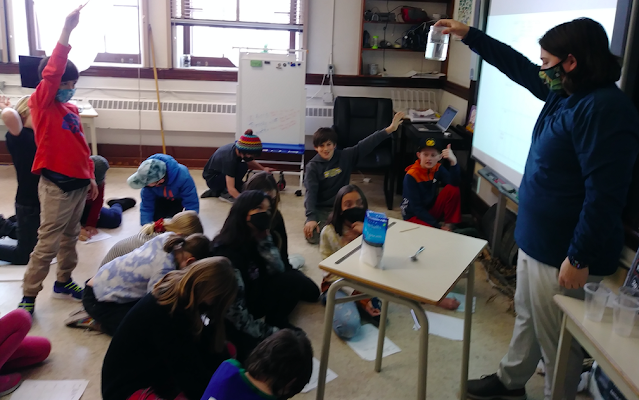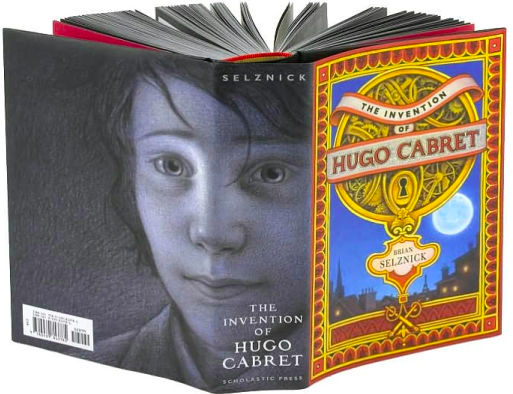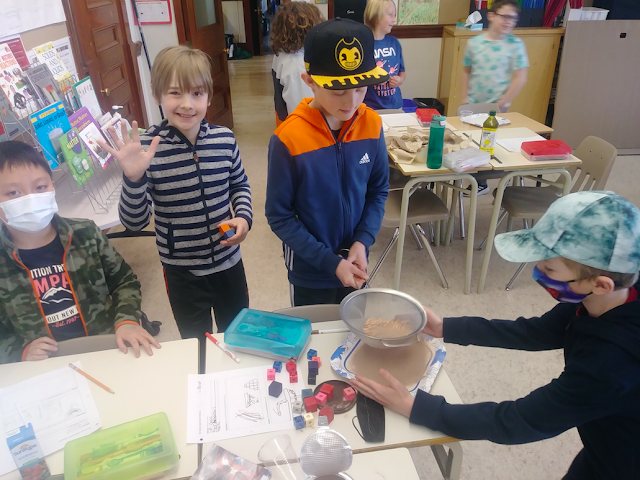French Animal Booklets

French: I can develop vocabulary based on the theme: animals; I can practice pronunciation. Over the past couple of months, we have been exploring Animal vocabulary in French. Some ways we have learned and practiced the vocabulary include: repeating vocab works with Ms Elder, searching out and recording the names of animals at the Zoo, playing BINGO, reading books, drawing mixed up animals on whiteboards and guessing each others' and worksheet games. We have shown our learning through a French booklet. Each page has a picture of a mixed-up animal, and a sentence underneath describing its body parts. For example, this page by Rochael says, My animal has the head of a bunny. My animal has the fin of a dolphin. My animal has the leg of a wolf. We each met with Ms Elder one-on-one to read her our booklet in both French (to check our pronunciation), and English (to check our understanding). Then, we went over our marks together. Today, we shared our French booklets with our...










